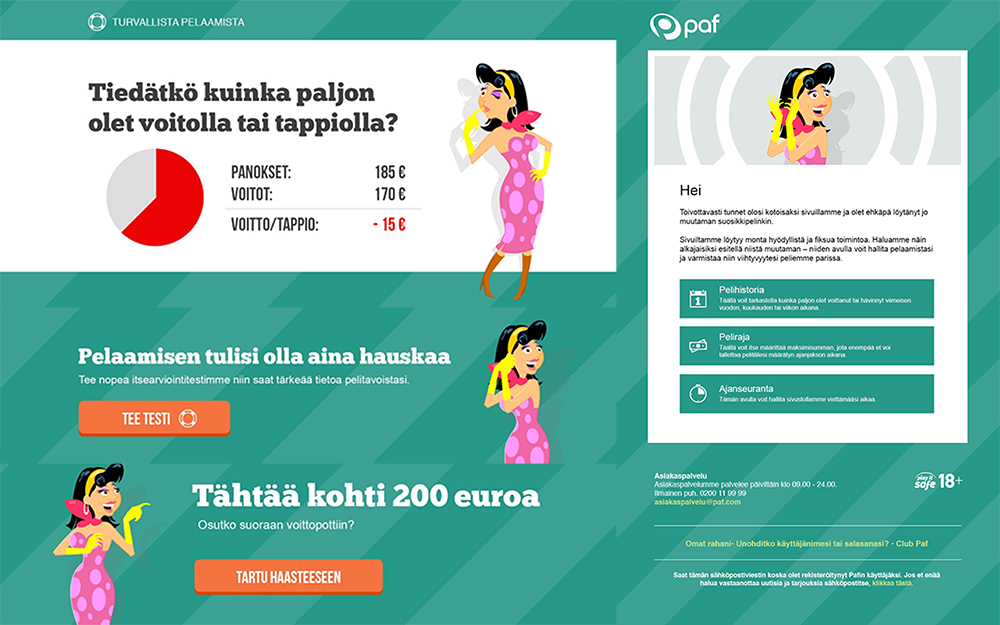Responsible gambling (RG) tools, aiming at helping gamblers to avoid gambling-related harms, are common in online gambling platforms. Gambling industry, policy makers, and researchers have warned that RG tools can potentially disturb recreational gamblers, channeling them to less protective operators. No evidence exists to support these concerns, and they can hinder the development of effective RG tools. The current study aimed to investigate the recreational gamblers’ experiences of RG tools.
In a new stuydy, that was published today, a total of 10,200 active customers of an online gambling service were invited to complete an online survey and rate their overall reactions, attitudes, disturbance and irritation towards RG tools, as well as their inclination to abandon a gambling service due to overexposure to RG tools. N = 1223 surveys were completed.
Non-problem gamblers had positive experiences of RG tools. Moderate-risk gamblers had more positive overall reaction and less irritation to previous experiences of RG tools compared to non-problem gamblers. Problem gamblers had least positive attitudes, most disturbance and most irritation towards RG pictures. Non-problem gamblers had lowest rates of having abandoned a service because of perceived overexposure to RG tools (5.2% compared to 25.9% of problem gamblers), with a significant between-group difference (OR [95% CI] = 7.17 [3.61–14.23], p < .001).
Non-problem gamblers were not particularly disturbed by RG tools and were not at risk of abandoning online gambling services because of overexposure to RG tools. The study found no grounds for limiting the design and implementation of RG tools due to fears of disturbing recreational gamblers.
Read the full paper:
Ivanova, E., Rafi, J., Lindner, P., & Carlbring, P. (2019). Experiences of responsible gambling tools among non-problem gamblers: A survey of active customers of an online gambling platform. Addictive Behaviors Reports, 9, 100161. doi:10.1016/j.abrep.2019.100161
